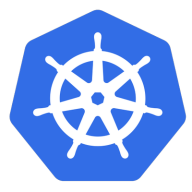
![Nutanix Kubernetes Engine NKE [EOL] Logo](https://images.peerspot.com/image/upload/c_scale,dpr_3.0,f_auto,q_100,w_64/haosg86qw426gprr0w60eovzmyaw.png?_a=BACAGSDL)
Kubernetes and Nutanix Kubernetes Engine NKE compete in the container orchestration category. Kubernetes seems to have the upper hand due to its open-source flexibility, scalability, and adoption across various cloud environments.
Features: Kubernetes highlights scalability, self-healing capabilities, and cross-platform flexibility, making it suitable for complex and diverse cloud environments. Its rich community support and integration with multiple platforms increase its versatility. Nutanix Kubernetes Engine NKE provides simplicity in deployment, reliability, and straightforward management within its single console, complemented by integrated virtualization features.
Room for Improvement: Kubernetes could enhance management simplicity, strengthen its security integration, and offer more intuitive dashboards. The complexity requires better documentation and user interfaces. Nutanix Kubernetes Engine NKE could expand its scalability features, improve disaster recovery options, and support high-performance applications better, with more automated processes.
Ease of Deployment and Customer Service: Kubernetes offers adaptability across hybrid, private, and public clouds, providing unmatched deployment flexibility. However, support might be inconsistent due to its community-driven nature. Nutanix Kubernetes Engine NKE ensures reliable and consistent on-premises support, closely tied with its ecosystem, although restricted to on-premises deployments.
Pricing and ROI: Kubernetes, being open-source, has no licensing costs, appealing to those seeking cost-efficient solutions with notable ROI from reduced infrastructure expenses, though optional tools may add costs. Nutanix Kubernetes Engine NKE presents competitive pricing when bundled in the Nutanix ecosystem, offering valuable features without additional charges but with limited flexibility compared to Kubernetes.

| Company Size | Count |
|---|---|
| Small Business | 25 |
| Midsize Enterprise | 10 |
| Large Enterprise | 47 |
| Company Size | Count |
|---|---|
| Small Business | 9 |
| Midsize Enterprise | 2 |
| Large Enterprise | 4 |
Kubernetes (K8s) is an open-source system for automating deployment, scaling, and management of containerized applications.
It groups containers that make up an application into logical units for easy management and discovery. Kubernetes builds upon 15 years of experience of running production workloads at Google, combined with best-of-breed ideas and practices from the community.
Nutanix Kubernetes Engine NKE [EOL] offers easy deployment, efficient resource management, and seamless integration with existing infrastructure, supporting virtualization and configurable RBAC.
Nutanix Kubernetes Engine NKE [EOL] simplifies Kubernetes cluster deployment and management, offering robust features such as health checks and seamless upgrades. It integrates with existing systems, supports virtualization, and provides a unified console. Automatic load management and scalability contribute to its stability. Though migrating via VMware poses challenges and documentation updates are needed, potential enhancements include dynamic resource scaling, advanced backup options, and improved disaster recovery. NKE is ideal for microservices, container management, and application modernization, playing a vital role in DevOps settings.
What are the key features of Nutanix Kubernetes Engine NKE [EOL]?Nutanix Kubernetes Engine NKE [EOL] is deployed in industries focusing on microservices and application modernization, serving development to testing environments. It integrates with hardware and API tools, supporting DevOps workloads and infrastructure management. Primarily used on-premises, it supports large-scale application deployment leveraging network capabilities.
We monitor all Container Management reviews to prevent fraudulent reviews and keep review quality high. We do not post reviews by company employees or direct competitors. We validate each review for authenticity via cross-reference with LinkedIn, and personal follow-up with the reviewer when necessary.